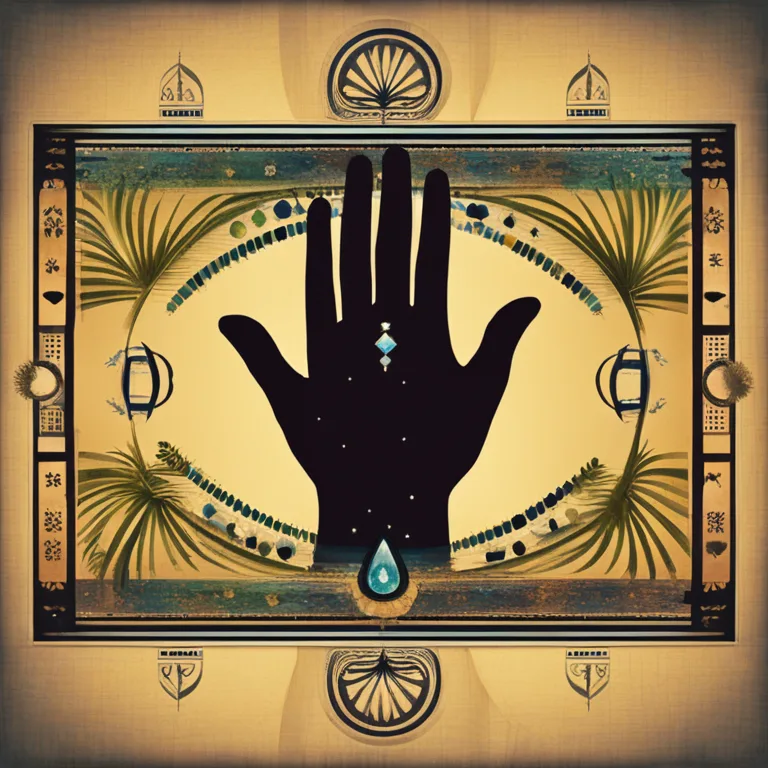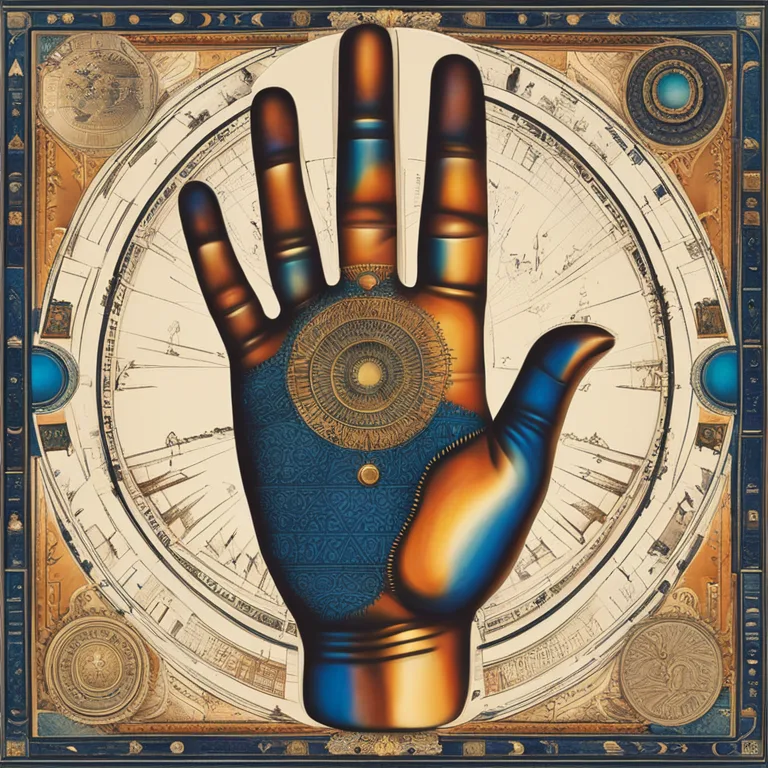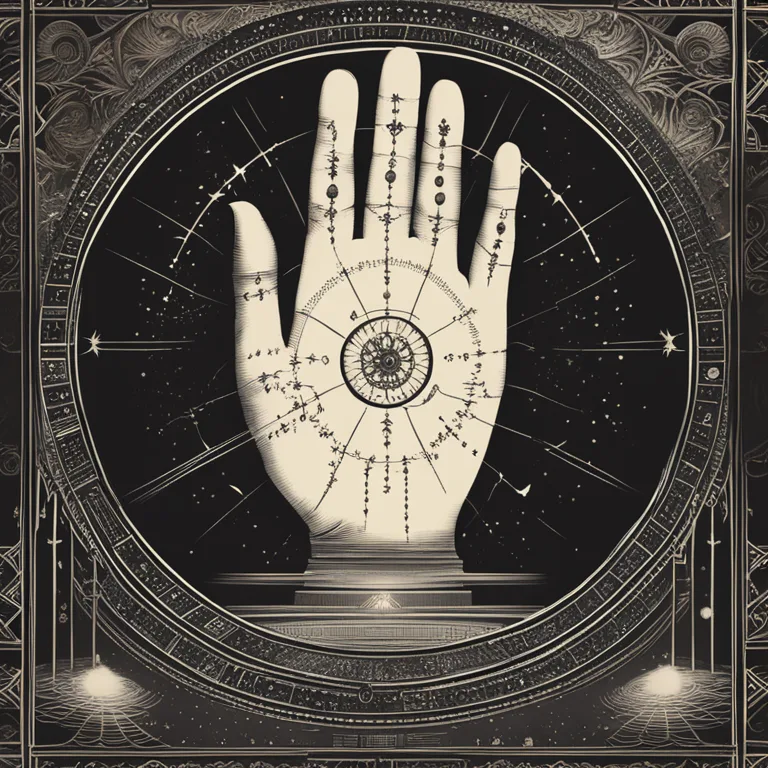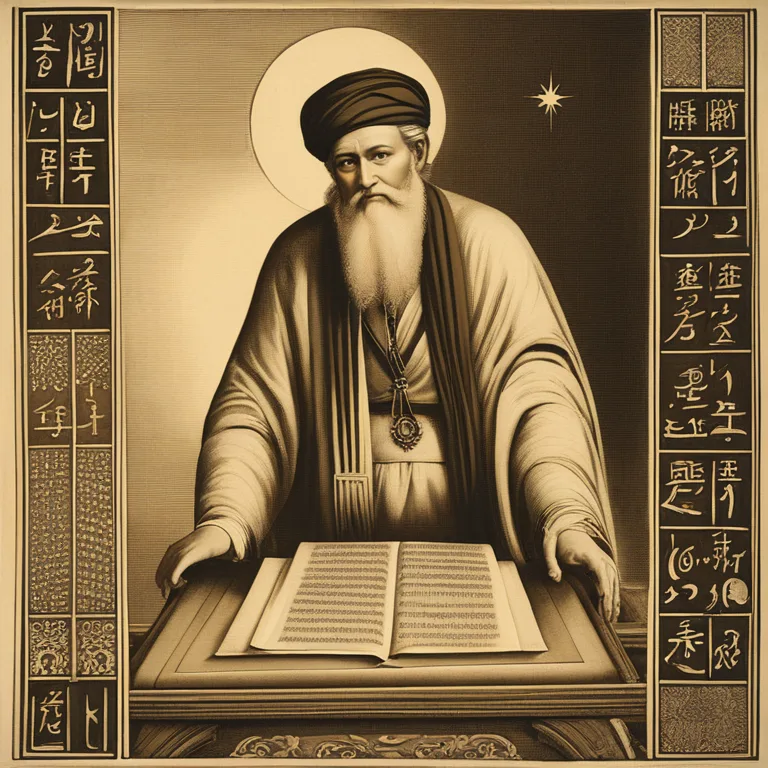
A Historical Perspective of Palmistry
Discover the historical roots of palmistry and the reasons behind its creation as a method of personal insight and foresight.
article by Nora Pennington
The Beginnings of Palmistry
Palmistry, also known as chiromancy, is an ancient practice that has fascinated humanity for millennia. Its origins are opaque, with some historians claiming it began in India, while others attribute its roots to China or ancient Egypt. Over time, palmistry spread across different cultures and continents, evolving into a complex system for self-awareness and divination. The initial motive behind this art seems deeply entwined with the human inclination to understand the self and the future, providing a tangible method to explore both.

Interpreting Life's Patterns
As the practice of palmistry developed, it became rooted in the belief that the hand is a microcosm of the universe, reflecting an individual's character, health, and potential life events. The lines, shapes, and mounts of the hand were thought to reveal the subconscious mind and destiny. Ancient palmists created an elaborate system to decode these patterns, using it as a psychological tool to help individuals unlock their potential and navigate life's challenges.

Spiritual and Scholarly Interests
The ancient scholars and spiritual leaders who contributed to the development of palmistry often sought to understand the link between the physical world and the spiritual realm. Some early practitioners were likely inspired by astrological principles, connecting celestial movements with the lines on the palm. Others viewed palmistry as a surefire way to tap into the individual's life force, or chi, to reveal the essence of one's spiritual journey.

A Tool for Counseling
In many cultures, palmistry has been used as a counseling tool, providing comfort and insights to those seeking guidance. Similar to modern therapy practices, the process of a palm reading would offer individuals a chance to reflect on themselves, which in turn could lead to moments of profound realization and personal clarity. This therapeutic aspect of palmistry underlines its creation as a means to heal and provide solace.

Palmistry as a Cultural Artifact
Throughout history, palmistry has also served as a cultural artifact, embodying the social and spiritual narratives of its time. Each era has seen different applications and interpretations of palm reading, reflecting the ever-changing human condition. This malleability is one of the reasons why palmistry was created, as it allowed continuous evolution and relevance across various epochs and societies.
Palmistry's Renaissance
Moving into the current era, the renewed interest in metaphysical practices has spearheaded a revival of palmistry. As people in 2024 seek holistic approaches to wellness, palm readings are increasingly regarded as part of a spiritual and mental health toolkit. The advancement of technology has also played a role in palmistry's creation and rebirth, with applications and online platforms making the practice more accessible to a global audience.
Conclusion: The Timeless Lure of Palmistry
In conclusion, palmistry was created out of humanity's universal desire for self-understanding and foresight. Over the centuries, it has morphed and adapted, but the fundamental allure remains unchanged. Today, as we continue to seek meaning within and pathways before us, palmistry retains its position as an enigmatic, yet reassuring presence in our quest for knowledge.
Published: 1/3/2024
Modified: 1/3/2024
More predictions
Come back here soon to learn more about yourself and your future


Palmistry Clues to Predicting Parenthood
Delve into the palmistry lines associated with predicting childbirth and learn what your hands may reveal about future family life.


Accuracy in Divination: Palmistry vs. Astrology
Explore the relative accuracy of palmistry and astrology in predicting the future and revealing personal traits in this insightful comparison article.


Palmistry Insights on Love: Counting Your Relationships
Discover what palmistry reveals about your romantic journey. This article shares insights on interpreting your palm lines for potential relationships.